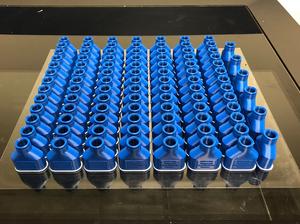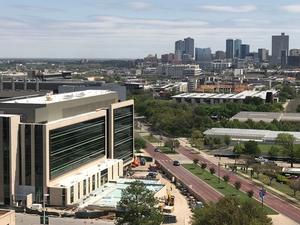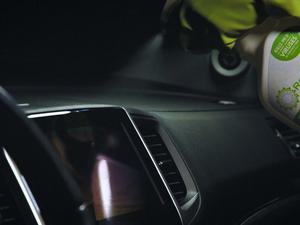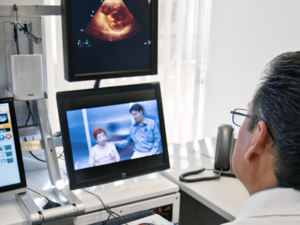The Covid-19 pandemic has quickly become one of the largest crises many individuals and businesses have faced. And beyond the toll it has taken on people’s lives, it has created an economy that has left many businesses struggling to keep staff on payroll and keep doors open.
However, around the Metroplex, a number of local startups have found ways to navigate the pandemic’s challenges and uncertainty, while also finding ways to help out. Ranging from restaurant tech to edtech and gig work to dedicated aid networks, companies in North Texas have been working to manufacture PPE, help get people back to work and keep other businesses going.
While Covid-19 cases have been declining in DFW and across the state, after spiking to record highs in June and July, the uncertainty left in its wake will likely continue to linger in the months, if not, years ahead. And though it hasn’t been as affected economically as other regions, North Texas has still had startups like Tripbam and OYO make layoffs. It has also seen more than 1,900 businesses permanently close due to the pandemic, helping to drive the unemployment rate to reach nearly 13 percent at its peak in April.
We’ve put together a list of the startups and organizations that have been making some of the largest impacts in the local community and beyond. And while they work in different industries and on different initiatives, the thing that unites them – as it unites much of the North Texas startup ecosystem – is that they use their abilities to help fight the spread of the virus and help protect the community from its financial and physical effects.
Check them out below.
OneDine
When the spread of the virus was declared a pandemic in March some of the businesses most immediately impacted by lockdown orders were restaurants, which rely on an in-person experience. And not long after that, Plano-based OneDine, a restaurant software startup, deployed its technology across the country to help restaurants stay open.
“We built this technology for years betting on a future where most people are going to use their phone for functions in restaurants and Covid ended up being an accelerator probably five years in the speed of adoption and where the world is,” Rom Krupp, OneDine founder and CEO, told NTX Inno
Founded in 2017, OneDine has created a platform that helps streamline and personalize service in the restaurant industry. Since nearly the beginning of the pandemic, the startup has been offering its technology to restaurants in all 50 states in the U.S. for free. Through the tech, restaurants can create digital menus, as well as offer at-the-table ordering and pay. The company has also rolled out new features that allow restaurants to extend their dining rooms into the parking lot with curbside ordering and pickup.
Krupp said OneDine has been helping about 60 restaurants per week and would need to ramp that up to about 100 per day to keep up with demand.
The company has been able to do this with the help of a $5 million Series A round led by TMW Capital and Hidden Lake Asset Management in January. The rollout has also caused OneDine to go on a hiring spree, adding nearly 20 new employees and bringing its total headcount to 43 full-time employees – a number Krupp said he expects to double in the next six to eight months. Krupp said the company will soon have to start charging for the technology as it looks to bring in revenue to support the growing team and need in the restaurant industry.
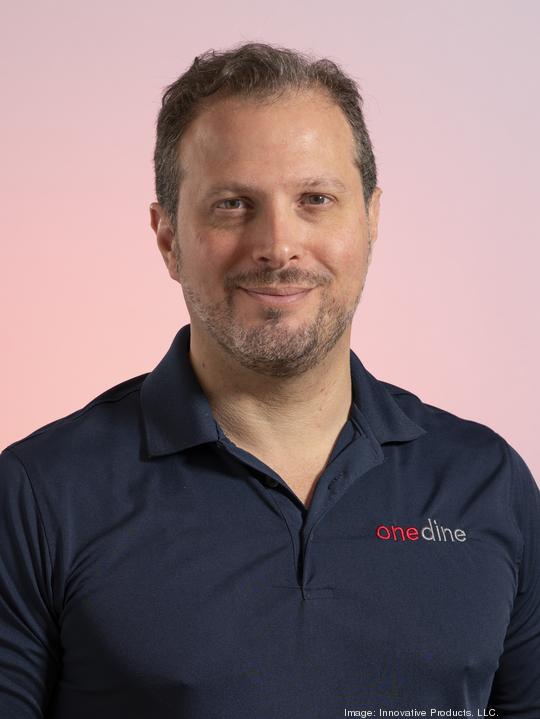
“Restaurants don’t want to change the behavior, because hospitality involves getting served on,” Krupp said. “Learning that [technology] doesn’t take away from that experience if you don’t take it away from the people who want it - there is a best of both worlds here.”
In addition to helping restaurants pivot to a new digital reality, OneDine also recently spearheaded an effort to get the FDA to allow restaurants serving make-your-own meal kits to qualify for SNAP benefits. While the efforts failed to get the traction it expected, Krupp said he felt it would not only allow residents use their SNAP benefits to get quality food. Krupp said it would have also helped bring some of the money that was going to grocery stores back to the restaurants that were struggling.
Even after the pandemic, Krupp said he sees its impacts on the restaurant industry lingering into the future. He said that some features many are used to like self-serve soda fountains will likely be a thing of the past. And as more people use curbside pickup and delivery options, the demand for in-person dining will likely decrease, shrinking dining rooms and expanding kitchens to accommodate. While some of the dining experience might change, Krupp said it's important to help save restaurants, as they provide a much-needed space for community.
“I look at our society and where society gathers, and restaurants are sort of true, consistent gathering places,” Krupp said. “We’re social creatures… and restaurants are just a vital part of that… we can’t give up on them.”
RoboKind
With districts in the region and across the country welcoming students back school year for virtual and in-person learning, teachers and students are facing the challenges that go with online learning.
“As we started hearing from districts that they would be closing schools and moving to virtual learning due to the virus outbreak, we immediately asked, 'What can we do to help?'," said Valorie Loomer, RoboKind CEO, in a statement.
Even before the end of the last school year, Dallas-based edtech startup RoboKind, which makes educational robots, launched an initiative to provide its coding instruction software, District Enterprise robots4STEM, to students in districts with pandemic-related closures for free. Prior to the pandemic, RoboKind had only sold the software with the purchase of one of its robots but sped up the launch to meet the need created by the pandemic.
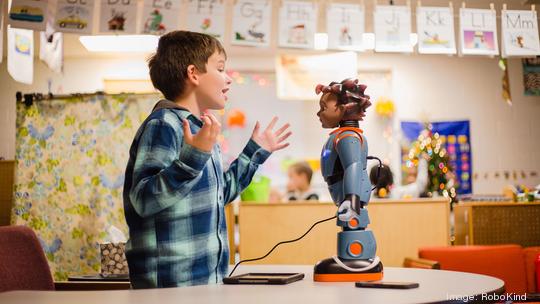
“Things were looking good and moving really fast… then Covid hit and suddenly all of our customers had no idea what to do,” Richard Margolin, RoboKind co-founder and CTO, recently told NTX Inno said at its Inno on Fire awards.
While Margolin said that in-person learning is preferable to the virtual options, the company’s technology is positioned to continue to help students, especially those on the autism spectrum, stay up-to-date on their schoolwork. One of its robots, named Milo, uses body language cues and social and emotional support in its lessons to increase engagement for students on the spectrum. And as teachers adapt to new methods of instruction during the crisis, Margolin said those students can sometimes be the ones who fall behind, as they typically require more individualized instruction.
“We still believe, and research shows, that the engagement with our coding curriculum is maximized when students can code with a purpose, code in real world environments through event-driven programming, and solve problems with real world robotic tasks, but students need to start somewhere," Margolin said.
Health Hacking Crisis Network
When taking on a challenge as large as a global pandemic, there is strength in numbers.
In late March, as cases in the Metroplex first began to rise, Health Wildcatters CEO and founder Hubert Zajicek realized this and quickly assembled a community of innovators around the country called the Health Hacking Crisis Network. With back grounds spanning from tech to medicine to engineering and beyond, the more than 400 member group is able to quickly respond to the changing needs of residents, frontline workers and businesses during the crisis.
“The intent was to get as many people with relevant backgrounds together; it’s not something you just join and observe, you’re being asked to volunteer whatever talent you have,” Zajicek previously told NTX Inno
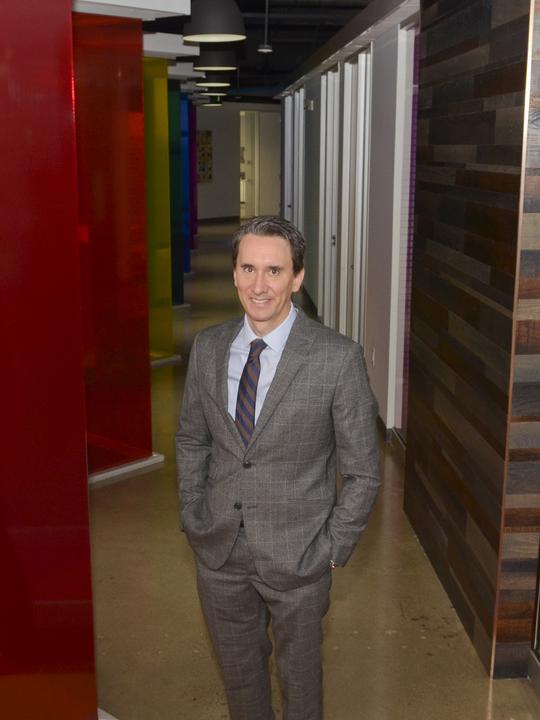
Through the group, Slack channels are set up for people with certain skill sets to coordinate on different projects, while a group of “inner circle” people who receive requests for support host daily briefings on how to best handle and coordinate them.
So far, the group has worked on multiple major projects, including helping supply PPE, as well as teaching other organizations how to make and source it. The HHCN has also created Covid-19 infographics, webinars and podcasts to help educate people in the U.S. and Latin American about the virus and safety. More recently, the group has launched a book challenge, seeking a child’s perspective to explain the pandemic to other kids. It has also launched a new project to create clear masks that allow deaf people to be able to see the mouth of the person they’re speaking to.
“We need a lot of smart people getting together and finding an answer,” Zajicek said. “This is about people saying, ‘Here are my gifts, my talent... and I’m willing to give this to this group, no matter what is needed.’”
UT Dallas
As a hub of ideas and innovation, UT Dallas has been using its resources to help respond to pandemic-related needs in the Metroplex, as well as creating a community to help combat the spread of the virus and its impacts.
Like many universities, though the pandemic caused UTD to close its campus to non-essential personnel, it has created the COVID UT Dallas Response Lab out of its UTDesign Studio, which has been churning out research, 3D-printed PPE and other technologies to help those fighting the spread of the coronavirus in partnership with local organizations like UT Southwestern, Parkland Health & Hospital System, Texas Instruments and Unique Software Development.
“I wanted to do more than cheering on doctors and nurses on the sidelines as they are working tirelessly on the front lines,” said Khoa Nguyen, response lab volunteer and biology senior, in a prepared statement
The PPE production is largely spearheaded by Walter Voit, an associate professor of material science and engineering and founder and CEO of UTD launched Adaptive 3D Technologies, who also runs the Advanced Polymer Research Lab there. He joins fellow UTD-launched startup Invene, a health care software startup created by CEO James Griffin, whose company has been 3D-printing a device that allows a scuba mask to be converted into a ventilator.
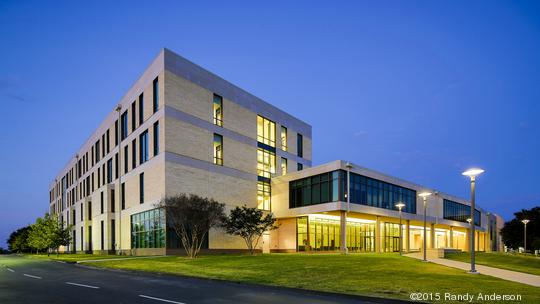
“We have the connections, resources and talent to make it happen because the coronavirus is causing a lot of problems and it kind of feels bad sometimes that you can’t really help. So this was a situation where I knew I could solve it, I knew I could solve it quickly,” Griffin previously told NTX Inno.
However, the university and its affiliated companies haven’t been the only ones helping out. In May, UTD and SMU teamed up with Dallas-based RevTech Ventures on its RevTech SAFE Schools grants, a $5,000 award for student-generated ideas aimed at slowing the spread of infectious diseases on campus as the universities eyed reopening efforts. Winners included Shop Ticketing System, an app that looks to limit the amount and movement of people in a given space or shop; SaniScanner, a sterilization system using low-cost UV-C technology at checkout counters that can protect against a number of infectious diseases; and CampusOven, a newly-launched on-demand delivery startup.
“A college education is about more than what occurs in the classroom, and this project demonstrates the creativity and engineering expertise that our students can contribute to solve real-world problems,” said Stephanie G. Adams, dean of the Jonsson School and Lars Magnus Ericsson chair, in a prepared statement.
Shiftsmart/Get Shift Done
One of the most immediate impacts of the Covid-19 pandemic for many families across the country was the loss of a job, which brought the local unemployment rate to a high of 12.8 percent in April.
In response to this, Dallas-based part-time open shift connection platform Shiftsmart got to work and launched the Get Shift Done initiative to help put people back to work in ways that benefit the local community.
“In our lifetime, we have never seen a crisis that has stunted an economy so quickly,” said Patrick Brandt, president of Shiftsmart, in a statement.
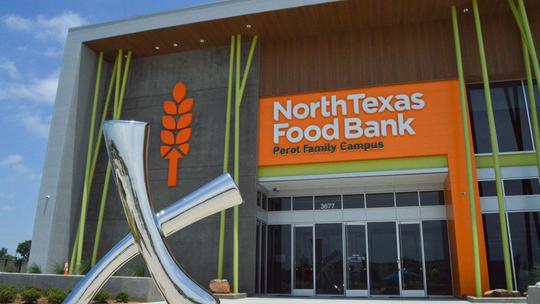
When it first launched in March, Get Shift Done partnered with the North Texas Food Bank, connecting hospitality industry workers with positions at the organization, providing them with some income while helping to meet an increased demand in the food bank’s services. In its first 90 days, the Get Shift Done initiative helped more than 11,000 workers and delivered or served more than 18 million meals.
Seeing a need for its work beyond the Metroplex, Get Shift Done partnered with Capital One, Sarah and Ross Perot Jr. Foundation and Access Healthcare to create a fund that would provide seed money and match donations to take the project nationwide. The organization now operates in most major cities in Texas, as well as other metro areas across the country like New Orleans, Washington, D.C. and Arkansas.
“During times of uncertainty, it is important to come together to find a way to serve our neighbors in need,” said Trisha Cunningham, president and CEO of the North Texas Food Bank, in a statement. “It will take innovation and collaboration to meet the needs for North Texans, and we expect these needs to continue to grow in the coming months.”

